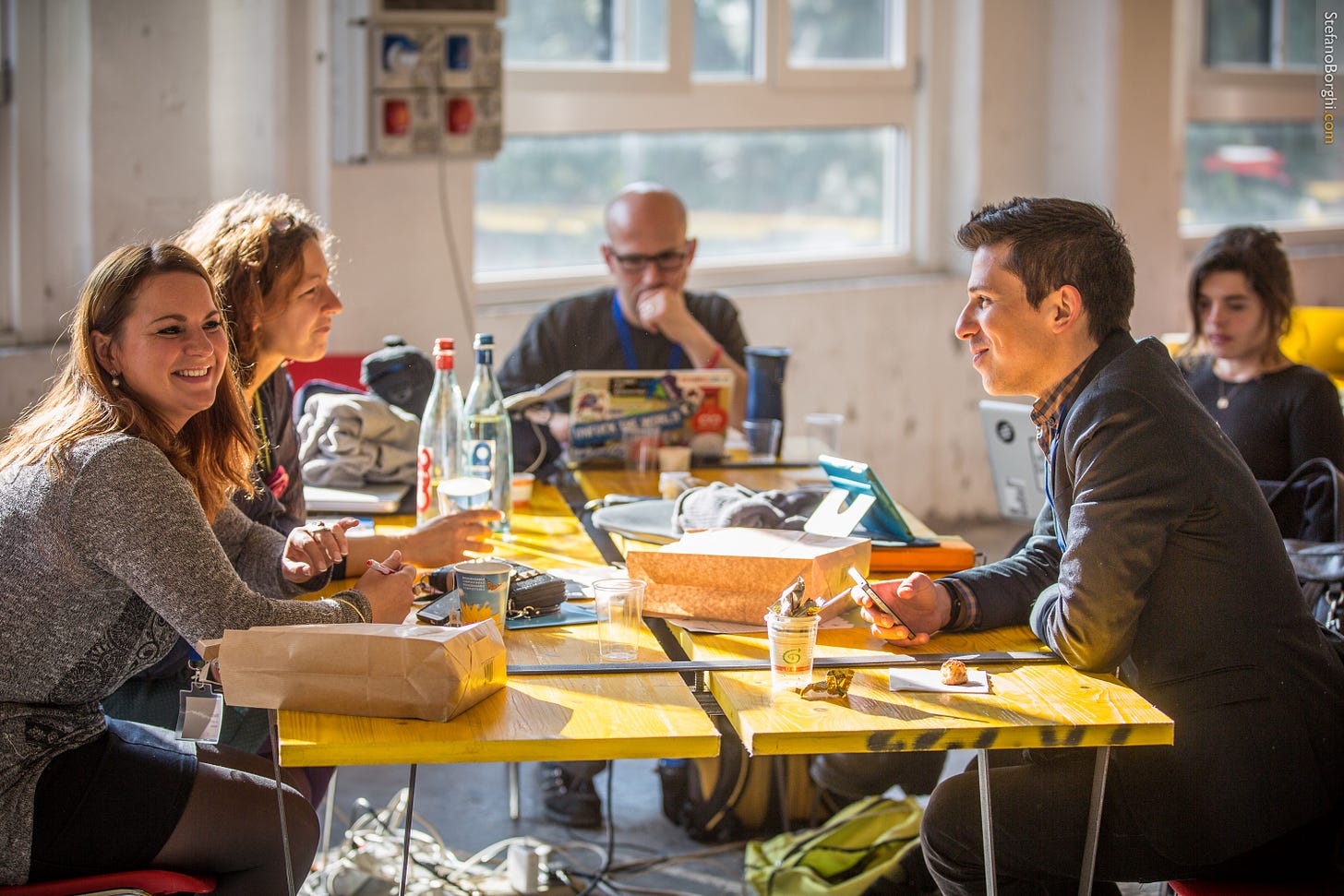The Future of Coworking Is Now a Civic Choice
A story about citizenship, connection, and what coworking can still become—if we’re willing to show up.
This Is the Coworking I Know—and Why European Coworking Day Feels Like the Right Moment
As much as I love a beautifully designed, biophilic, neurodiverse-friendly workspace, when someone says coworking, I still think of that photo I’ve had at the top of my social media profile for the last 10 years.
It’s from Coworking Europe in Milan.
A group of us huddle…




